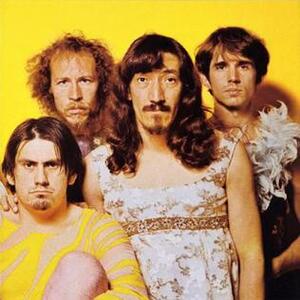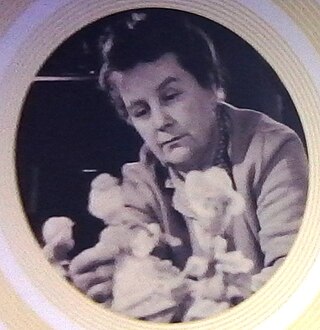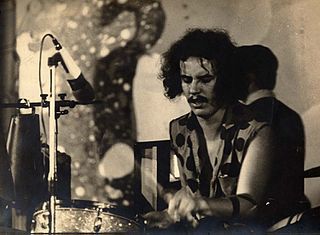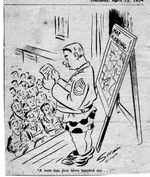
Frank Vincent Zappa was an American musician, composer, and bandleader. In a career spanning more than 30 years, Zappa composed rock, pop, jazz, jazz fusion, orchestral and musique concrète works; he also produced almost all of the 60-plus albums that he released with his band the Mothers of Invention and as a solo artist. His work is characterized by nonconformity, improvisation sound experimentation, musical virtuosity and satire of American culture. Zappa also directed feature-length films and music videos, and designed album covers. He is considered one of the most innovative and stylistically diverse musicians of his generation.

We're Only in It for the Money is the third album by American rock band the Mothers of Invention, released on March 4, 1968, by Verve Records. As with the band's first two efforts, it is a concept album, and satirizes left- and right-wing politics, particularly the hippie subculture, as well as the Beatles' album Sgt. Pepper's Lonely Hearts Club Band. It was conceived as part of a project called No Commercial Potential, which produced three other albums: Lumpy Gravy, Cruising with Ruben & the Jets, and Uncle Meat.

Uncle Meat is the sixth album by the Mothers of Invention, and seventh overall by Frank Zappa, released as a double album in 1969. Uncle Meat was originally developed as a part of No Commercial Potential, a project which spawned three other albums sharing a conceptual connection: We're Only in It for the Money, Lumpy Gravy and Cruising with Ruben & the Jets.

Civilization Phaze III is the sixty-third album by Frank Zappa, released posthumously as a double album on October 31, 1994. It was the first studio album of new material from Zappa since 1986's Jazz from Hell. The album marks the third part of a conceptual continuity that started with We're Only in It for the Money (1968), with the second part being a re-edited version of Zappa's 1967 album Lumpy Gravy. Zappa described the album as a "two-act opera", but in lieu of traditional recitatives and arias, it alternates brief spoken word passages with musical numbers created on a Synclavier using a combination of sampled and synthesized sounds. Much of the sampled material in the second half of the album was originally recorded by Ensemble Modern and other musicians to Zappa's specifications.
Bizarre Records, self-identified simply as Bizarre, was a production company and record label formed for artists discovered by rock musician Frank Zappa and his business partner/manager Herb Cohen.

The Mothers of Invention were an American rock band from California. Formed in 1964, their work is marked by the use of sonic experimentation, innovative album art, and elaborate live shows. Originally an R&B band called the Soul Giants, the band's first lineup comprised Ray Collins, David Coronado, Ray Hunt, Roy Estrada, and Jimmy Carl Black. Frank Zappa was asked to take over as the guitarist when a fight between Collins and Hunt led to the latter's being fired. Zappa insisted they perform his original material — a decision that resulted in Coronado's leaving because he did not agree to the change — and on Mother's Day in 1965 the band changed its name to the Mothers. Record executives demanded the name be changed again, and so, "out of necessity", Zappa later said, "We became the Mothers of Invention", referencing the proverb "Necessity is the mother of invention."
Calvin "Cal" Schenkel is an American illustrator, graphic designer, animator and comics artist, specializing in album cover design.

Dave Fleischer was an American film director and producer who co-owned Fleischer Studios with his older brother Max Fleischer. He was a native of New York City.

Baby Snakes is a film which includes footage from Frank Zappa's 1977 Halloween concerts at the Palladium in New York City. It also includes backstage antics from the crew, and stop motion clay animation from award-winning animator Bruce Bickford.
Ian Robertson Underwood is a woodwind and keyboards player, known as a member of the original version of Frank Zappa's band the Mothers of Invention. Following the original band's split in late 1969, Underwood continued to work with Zappa extensively during the 1970s.

Ruth Underwood is an American musician best known for playing xylophone, marimba, vibraphone, and other percussion instruments in Frank Zappa and the Mothers of Invention. She collaborated with the Mothers of Invention from 1968 to 1977.

The Lost Episodes is a 1996 posthumous album by Frank Zappa which compiles previously unreleased material. Much of the material covered dates from early in his career, and as early as 1958, into the mid-1970s. Zappa had been working on these tracks in the years before his death in 1993.

The Dub Room Special is a film produced by Frank Zappa for direct-to-video release in October, 1982. The video combines footage from a performance at the KCET studios in Los Angeles on August 27, 1974, a concert performed at The Palladium, New York City on October 31, 1981, some clay animation segments by Bruce Bickford, and interviews. The 1974 footage was originally conceived as part of the TV special A Token of His Extreme. The entire production was edited in the "Dub Room" at Compact Video, a post-production facility in Burbank, California. A few of the Compact Video staff members have brief appearances.

Hermína Týrlová was a prominent Czech animator, screen writer, and film director. She was often called the mother of Czech animation. Over the course of her career, she produced over 60 animated children's short films using puppets and the technique of stop motion animation.

Luden's is an American brand of cough drop that is currently manufactured and sold in the US by Prestige Consumer Healthcare. Company headquarters are in Tarrytown, New York. Luden's products include Blue Raspberry, Honey Lemon, Honey Licorice, Kiwi-Strawberry, Orange, Original Menthol, Sugar-Free Wild Cherry, Watermelon, Wild Berry, Wild Cherry, and Wild Honey cough drops.

Arthur Dyer Tripp III is an American retired musician who is best known for his work as a percussionist with the original version of Frank Zappa's band the Mothers of Invention during the 1960s and Captain Beefheart and his Magic Band during the 1970s. Thereafter, Tripp retired from music. He attended an accredited chiropractic college in Los Angeles from 1980 through 1983, graduating with his Doctor of Chiropractic degree and later practising in Gulfport, Mississippi.
As an icon of counterculture and underground rock the American rock musician and composer Frank Zappa has been featured and referenced in various different media.

200 Motels, the soundtrack album to Frank Zappa's film of the same name, was released by United Artists Records in 1971. The original vinyl release was a two-record set, largely containing alternating tracks of rock music performed by the Mothers of Invention and symphonic music performed by the Royal Philharmonic Orchestra conducted by Elgar Howarth, all composed and orchestrated by Zappa. The album peaked at No. 59 on the Billboard 200, though reviewers deemed it a peripheral part of Zappa's catalog. Like the film, the album involves the theme of a rock band on tour and a loose satirical storyline about The Mothers of Invention going crazy in the small town of Centerville and bassist Jeff quitting the group, as did his real life counterpart, Jeff Simmons, who left the group before the film began shooting and was replaced by actor Martin Lickert for the film.
Euclid James "Motorhead" Sherwood was an American rock musician notable for being a member of the original version of Frank Zappa's band the Mothers of Invention, providing soprano, tenor and baritone saxophone, tambourine, vocals and vocal sound effects. He appeared on all the albums of the original Mothers line-up and the 'posthumous' releases Burnt Weeny Sandwich and Weasels Ripped My Flesh, as well as certain subsequent Zappa albums. He also appeared in the films 200 Motels, Video from Hell and Uncle Meat.

Meat Light is a 3CD compilation of Frank Zappa's Uncle Meat recordings. It is project/object #5 in a series of 40th Anniversary FZ Audio Documentaries, following MOFO (2006), Lumpy Money (2009), Greasy Love Songs (2010) and The Crux of the Biscuit (2016).


















